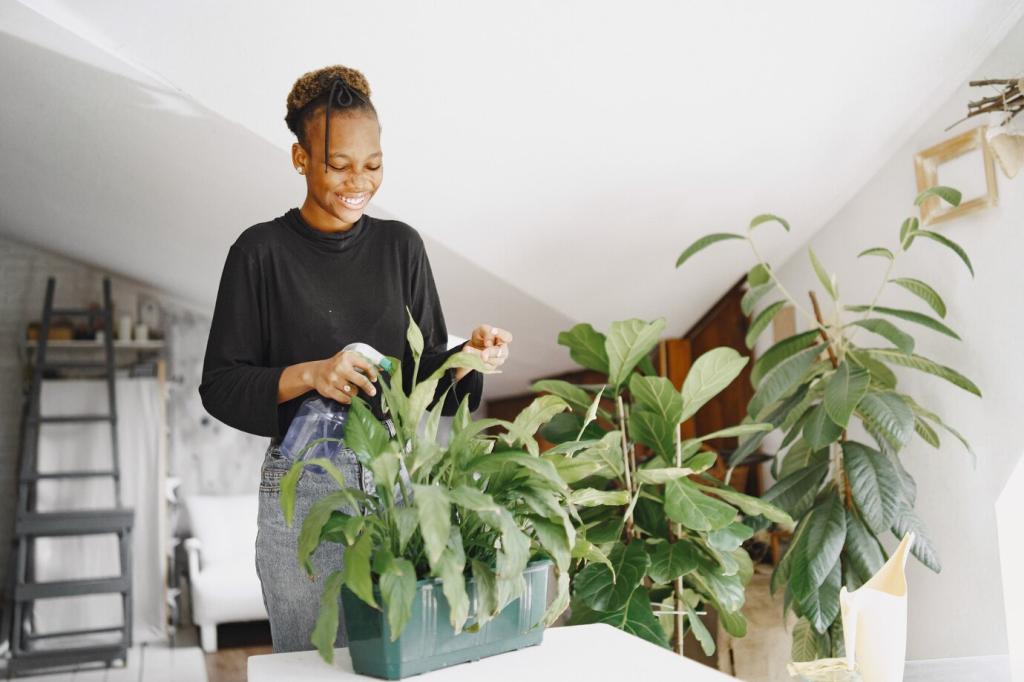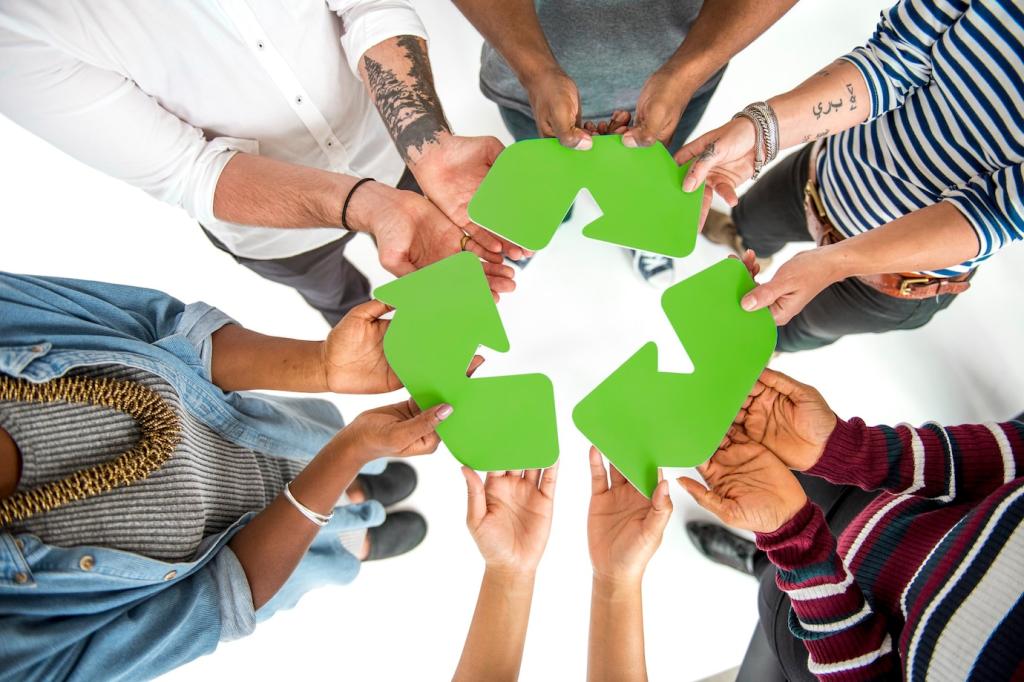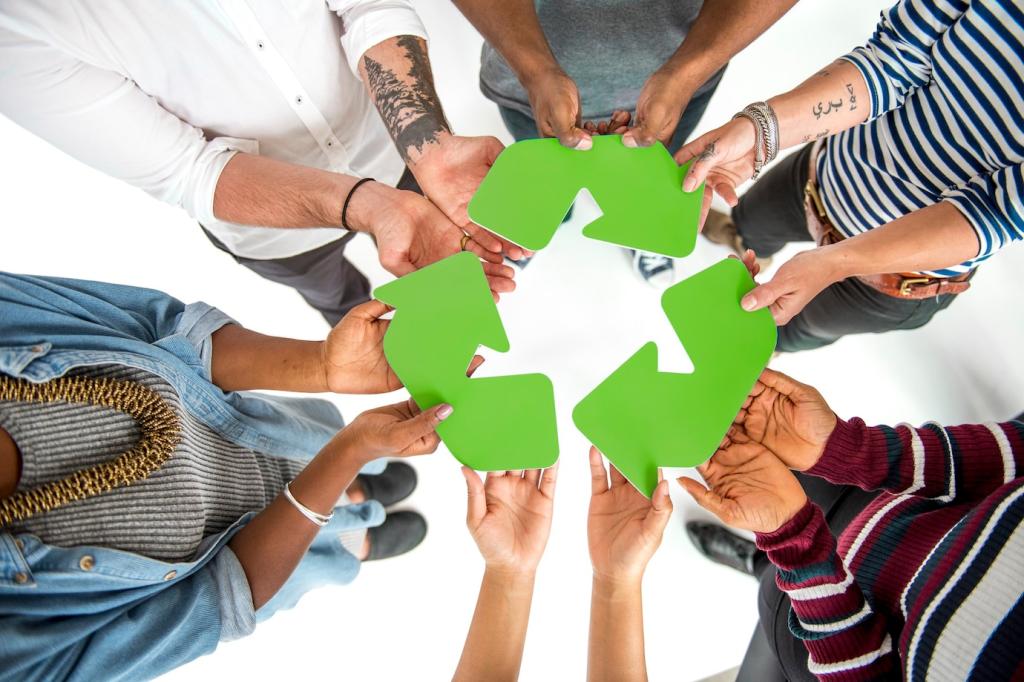Eco-Friendly Household Organization Essentials
Discover innovative ways to create a tidy, efficient, and environmentally responsible home. This guide explores various aspects of eco-friendly household organization, offering you practical tips and thoughtful inspiration for making your living space both neat and sustainable. From conscious decluttering to green storage solutions and mindful maintenance, embrace a lifestyle that keeps your home ordered while minimizing your ecological footprint. Let’s transform every room with clarity and care for the planet.

Conscious Decluttering for a Greener Home
Before removing items, evaluate their life cycle and utility. Choosing to donate or sell belongings that are still in good condition extends their usefulness and keeps them out of landfills. If an item is truly at the end of its life, research local recycling facilities or upcycling options, so it can be processed responsibly. Mindfulness in this initial organizational phase not only declutters your space but sets the tone for long-term eco-friendly habits.

Sustainable Organizers and Storage Options
Bamboo and Natural Fiber Baskets
Baskets crafted from bamboo, seagrass, rattan, or other rapidly renewable fibers offer aesthetic appeal as well as environmental benefits. These materials are biodegradable, sturdy, and often produced with minimal chemical treatments. Whether used in closets, pantries, or living rooms, such baskets present an attractive, low-impact alternative to plastic bins while bringing warmth and texture to your home organization.
Recycled and Upcycled Containers
Containers made from recycled plastics, metals, or glass divert waste from landfills and reduce the demand for virgin resources. Seek out brands that prioritize closed-loop production, or repurpose containers you already own to give them a second life. These solutions are especially valuable in kitchens, bathrooms, and offices, where durability and ease of cleaning are as important as sustainability.
Modular and Multi-Purpose Furniture
Opt for modular shelving units or furniture with built-in storage that serves dual purposes, minimizes clutter, and adapts to changing needs. Furniture made from sustainably sourced wood or recycled materials can significantly reduce your home’s carbon footprint. By choosing quality pieces that last, you cut down on waste generated by disposable, short-lived alternatives.
Plastic-Free Pantry Organization
Glass Jars for Bulk and Dry Goods
Switching bulk and dry goods into glass jars offers a clear, chemical-free solution for pantry storage. Glass is non-porous, doesn’t absorb food odors, and is endlessly recyclable or reusable. Organizing grains, spices, pastas, and snacks in glass jars improves visibility, cuts down on packaging waste, and creates an appealing, uniform look that’s easy to maintain.


Compostable and Cloth Storage Bags
For items like produce or baked goods, consider compostable bags made from cornstarch or plant fibers, as well as cloth bags that can be washed and used repeatedly. These options stave off single-use plastics and integrate effortlessly into your pantry setup. Cloth bags especially lend themselves to bulk shopping and transport, allowing you to fill, wash, and reuse as needed.
Eco-Friendly Closet Transformation
Curate a closet with versatile, loved pieces that match your style and needs, rather than overstuffing with fast fashion. Aim for a capsule wardrobe, which makes daily dressing simpler and helps you avoid impulsive purchases. This lean approach not only results in a tidier, more manageable closet but also reduces textile waste and the environmental toll of overconsumption.
Waste Reduction at Home
Smart Waste Sorting Stations
Designate dedicated spots for landfill, recycling, composting, and specialty items like batteries or electronics. Clear labeling and conveniently placed bins encourage everyone in your household to sort waste properly. Investing in attractive, washable units encourages long-term use and turns the mundane task of sorting into an organized, sustainable practice.
Composting Made Simple
Whether you have a backyard or a small apartment, there are composting solutions to fit every need. Try countertop compost caddies, worm bins, or community drop-offs. Composting not only diverts food waste from landfills but also produces nutrient-rich soil for houseplants or gardens. Educating yourself and your household on accepted materials ensures your composting efforts succeed.
Reducing Single-Use Packaging
Shop with a zero-waste mindset, opting for products with minimal or recyclable packaging. Bring your own containers to bulk stores and avoid individually wrapped goods whenever possible. Over time, these small changes substantially decrease the amount of trash you generate, streamlining your disposal systems and supporting wider sustainability.
Mindful Paper and Digital Organization
Paperless Solutions and Digital Decluttering
Transitioning as much as possible to paperless methods—such as opting for digital bills, receipts, and notes—not only saves trees but reduces the need for storage supplies. Regularly sorting, archiving, and deleting unnecessary digital files helps conserve energy on devices and cloud storage. Maintaining a streamlined electronic landscape makes everyday tasks more manageable and environmentally friendly.
Efficient Filing and Storage Systems
For essential paperwork that must be kept, use recycled folders, binders, and boxes, and label them clearly for fast retrieval. Store important documents in a safe, consolidated location to avoid misplacement or unnecessary duplication. An orderly filing system saves time, reduces paper consumption, and makes it easy to recycle items once they’re no longer needed.
Responsible Electronics Disposal
When old devices or accessories are no longer functional, seek out certified e-waste recycling centers. Donating or selling working electronics keeps them in use and out of landfills. Whenever you upgrade, choose devices from brands with strong take-back or recycling programs, ensuring your tech organization aligns with your overall sustainable living goals.
